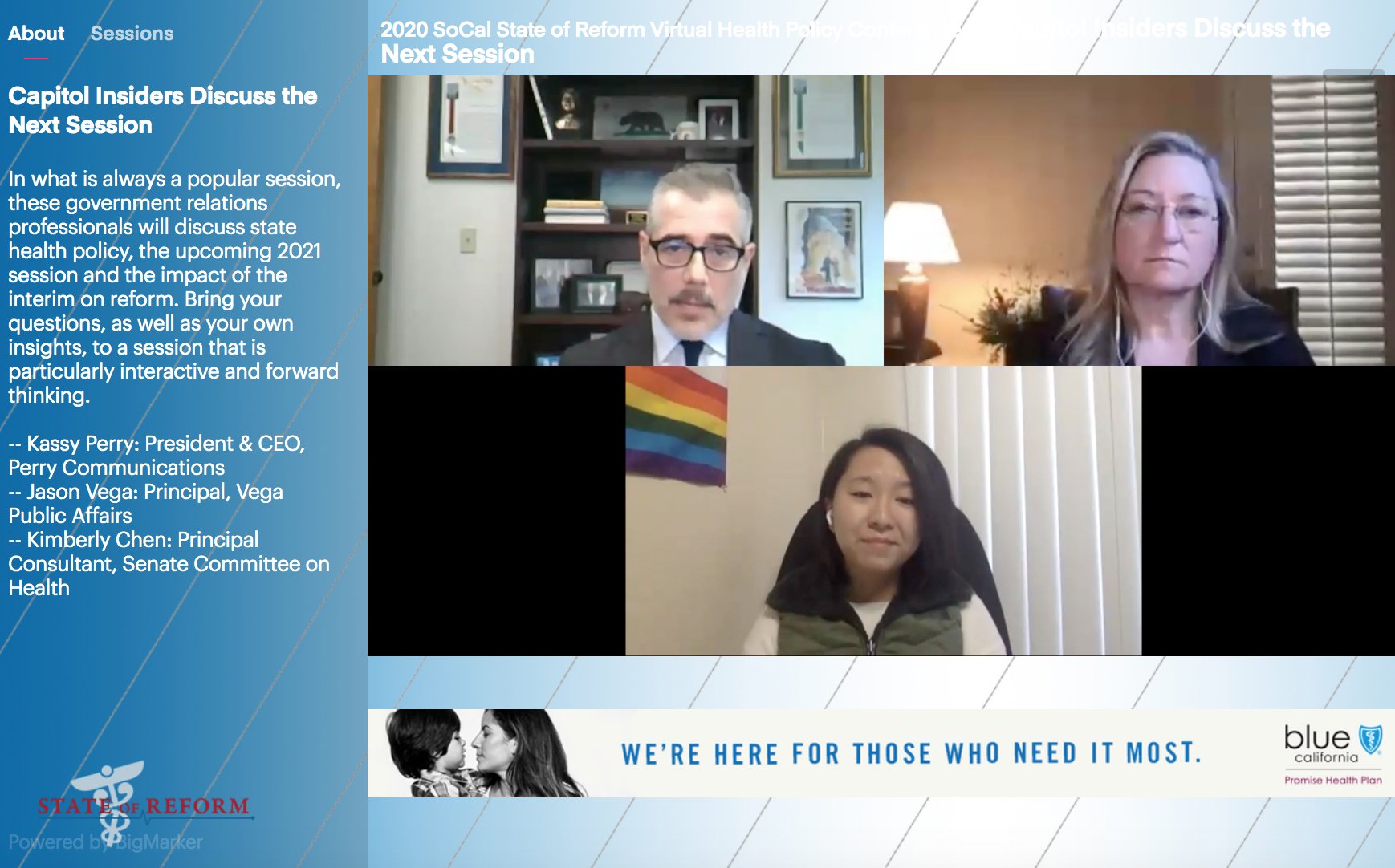State of Reform
By Sydney Kurle
All three panelists agreed that the 2020 legislative session was greatly hampered by the struggles of going virtual and the limits that the change created in delaying the number of bills heard by committees.
“Because of that there’s going to be a lot of pent up anxiety and anticipation for folks to work on things that they didn’t get to work on the past year,” said Chen.
Chen added that there is a lot of uncertainty in terms of what the budget will look like next year because federal COVID relief money is drying up. Without the renewal of those funds there is a lot of uncertainty surrounding what programs the state will be able to fund.
Vega added that there will also be large shifts in committee membership due to the incoming freshmen legislators, and some big names that have termed out like Senator Jim Beall and Senator Bill Monning. He says this may create a change in what bills are prioritized in committee hearings.
“We’re gonna have a challenge of whether or not we can have a full bill package,” said Vega.
The insiders also discussed the CalAIM initiative proposed in 2019, how it was sidelined by the pandemic, and whether that expansion will continue to be sidelined by vaccine distribution.
“We’re constrained by what the budget is gonna look like, and what kind of revenues we’re looking at,” said Chen.
They also discussed telehealth and how the expansion of technology for Medi-Cal recipients is important and has increased whole-person care. But, they also acknowledged the need to address the digital divide.
“Even embracing this new tech, we have to always do it underneath the guise of is there a health parity. With 38 million Californians, does everyone have equal access to health care and tech,” asked Vega. “I also think that’s going to play a part in what type of legislation is introduced.”
The panel also discussed how to make in-person care more available to citizens, especially in areas that are underserved or communities where there is a lack of trust in the providers available. Addressing the shortage of providers should also be a key issue for legislators.
“We need to leverage people to the fullest extent of their education and training,” said Vega.
The panelists also spoke about how the new administration will affect Medi-Cal and whether the pick of Attorney General Xavier Becerra will allow the relationship between California and the federal government to become more relaxed.
“It looks like we’ll have a more collegial relationship with the Biden administration and the Newsom administration,” said Perry.
As a whole, the panel agreed that health care costs and access, telehealth, CalAIM and Medi-Cal Rx, data transparency, health care consolidation, and whole person care will be the major issues to watch next year.
